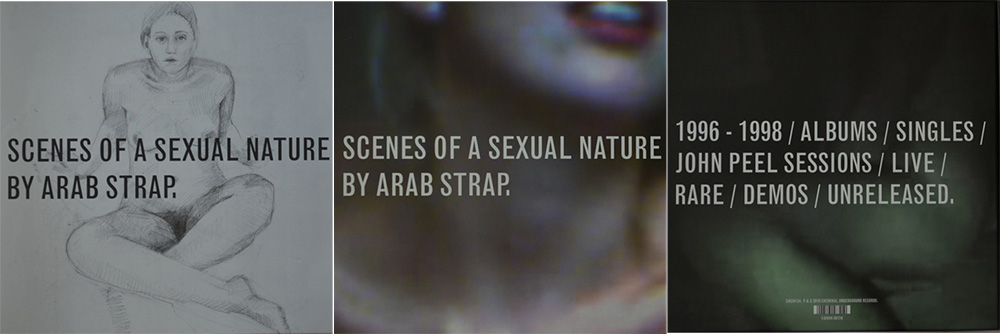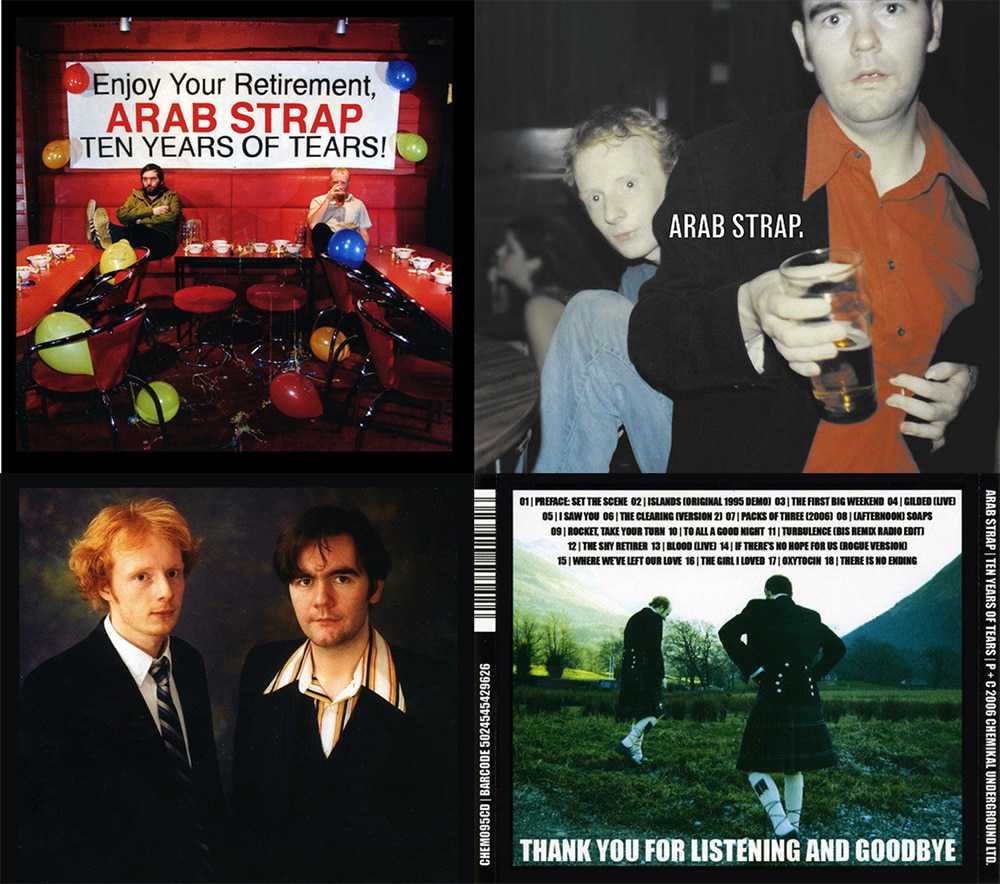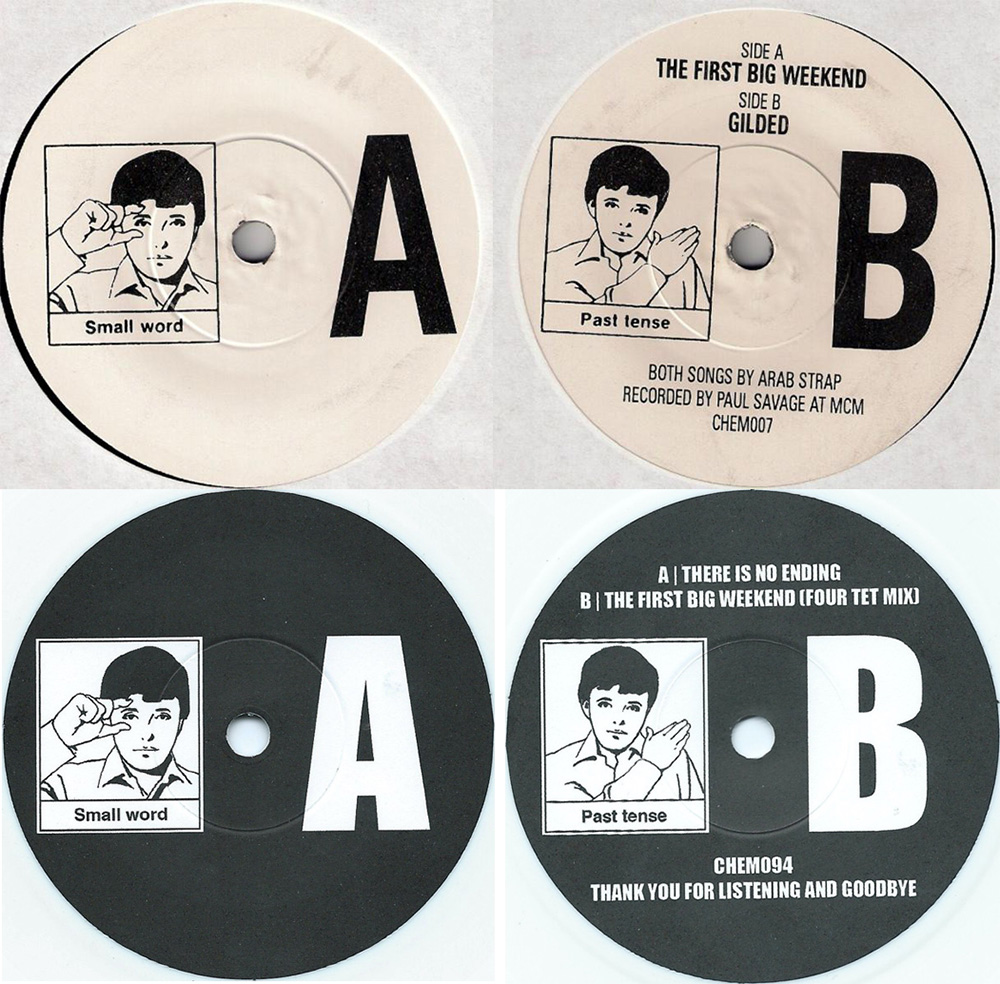Running parallel to this personal/public thread is the personal/private. The main photographic example is on 1999’s Elephant Shoe. Likely capturing Moffat’s then-girlfriend, the images of a woman sleeping walk a blurred line between romantic intent and voyeurism. As a relevant aside, “Elephant Shoe” is a phrase Falkirk teenagers would mouth across a room because it looks like “I love you.”

The artwork of the Philophobia album (1998) is just as bold: full frontal nudes of Moffat and his then partner created by Marianne Greated, now an artist and academic at the Glasgow School of Art. Greated’s art also features as close-ups on the Live 7” (1998), while her test sketches for Philophobia adorn the Scenes Of A Sexual Nature LP (2010) in the boxset of the same name.
While the main Philophobia shots leave nothing to imagination, on Live and Scenes Of A Sexual Nature, we return to the blend of the intimate yet half-obscured visible on The Week Never Starts Around Here and Elephant Shoe. This is so key to the visual identity of Arab Strap that the boxset cover is an extreme close-up of a woman’s neck, while the back looks like night-vision photography. Both hint at sensuality while relying on imagination to fill the gap.


Finally, there’s a last photographic ‘loop’ on the 2006 Ten Years of Tears and 2016 Arab Strap compilations. On the former, Moffat sits sullenly with pint glass empty, Middleton sips his pint at the far end of the table. On the latter, we see the baby-faced duo on a night out sometime in the mid-’90s, Middleton peering out from behind Moffat who is wearing a shirt that matches the previous photo’s red aesthetic — he’s also halfway through that pint he’s drained dry by 2006.
These two releases feature the only cover shots where Moffat and Middleton appear together. They still, however, refuse to adopt the ‘band of brothers’ vibe common to other groups. While the photo on Arab Strap nods to the private photo album style, Ten Years of Tears is the only time a deliberately posed camera shoot is used for an Arab Strap release. The record doubles down by including an early formal face-to-camera portrait where Middleton and Moffat appear dressed for school and disco respectively, plus a shot of two figures in highland regalia turned away from the camera. It’s implied it’s Arab Strap still refusing to play things straight.

Separate from the photographic thread, Arab Strap’s second visual strand was a focus on thick black-line sketches. Returning to the start of Arab Strap’s career, their first single, “The First Big Weekend” (1996), featured sketches of a man doing sign language. These sketches were then dusted off in 2006 and reused for “There Is No Ending”, a deliberate loop from ‘the first’ to ‘ending’, like the loop connecting the following ten years between 2006-2016.


